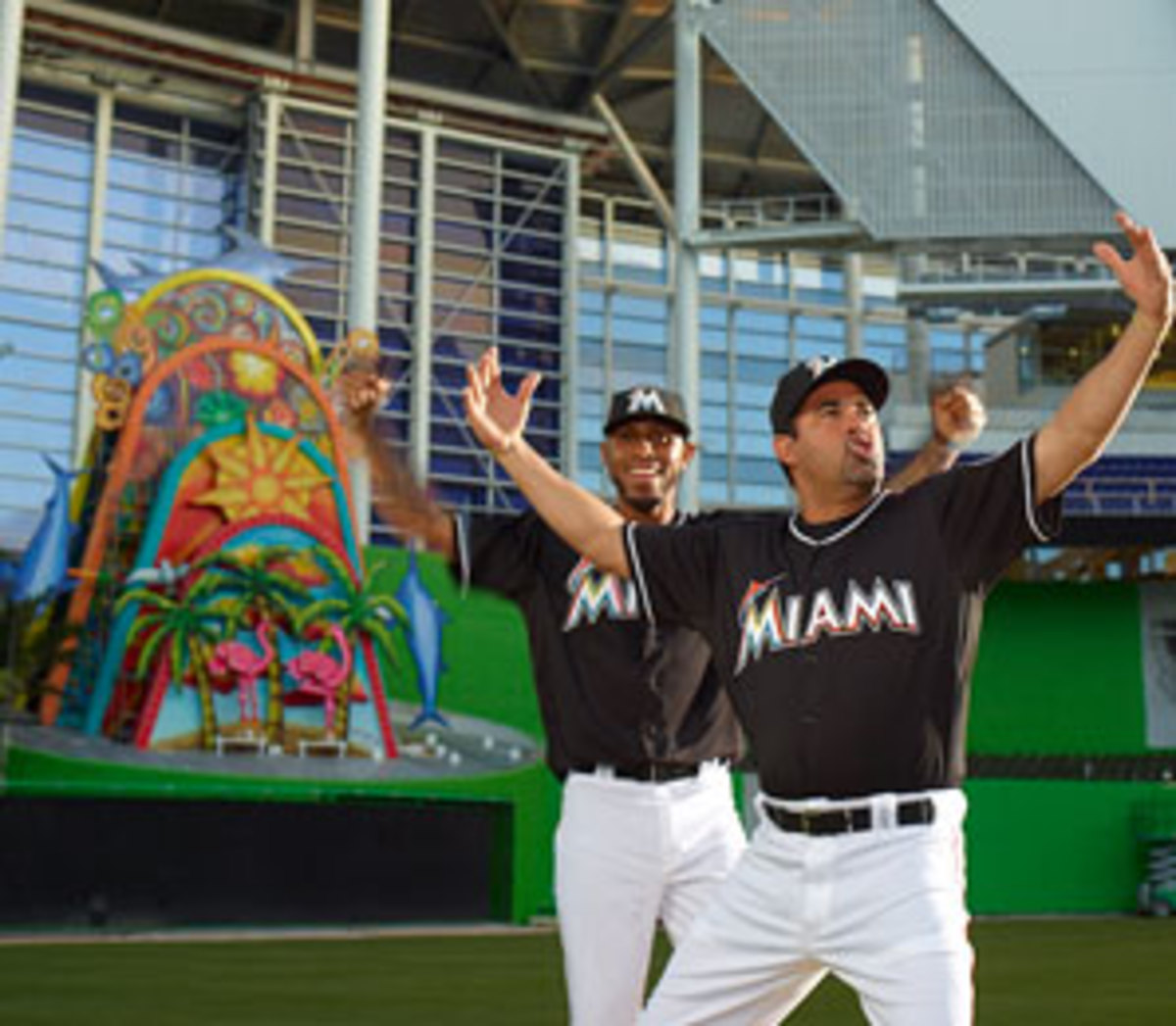
Guillen's firing shows fans not buying what Marlins are selling
When the Marlins gave Guillen a four-year, $10 million contract to be their manager in September of 2011, they did so partly because of the baseball acumen he'd displayed in his eight seasons at the helm of the White Sox, but primarily because they believed that he could, through the force of his indefatigable irreverence, foment a new passion for baseball in South Florida. He was hired to fill their gleaming new ballpark in Little Havana. He was hired to star, quite literally, in their new reality show, Showtime's The Franchise. As Larry Beinfest, the team's president of baseball operations, told me when I visited Miami in February, "I think he's going to energize this team and this market in a lot of ways with just his personality."
"Ozzie? Ozzie is excitement," the team's owner, Jeffrey Loria, told me.
It took Guillen just six months to prove that he is not quite as exciting as his employers had believed. Yes, his club lost, but he was allowed only until late July to win, as that was when his front office started selling off many of its major assets, starting with Hanley Ramirez. Any other established manager, especially one signed to such a long and lucrative contract, would likely have been permitted at least another season to set things right. But Guillen's fate was sealed because the Marlins overestimated the public's appetite for his unique persona. The reality show bombed, and ended an episode ahead of schedule. The new stadium, as beautiful as it is, bombed too. It drew just 27,400 spectators per night, 18th in the major leagues and at least 25 percent less than the organization had expected.
Loria is an art dealer by trade, and as such is attuned to the difference between intrinsic value and perceived value. A tiger shark preserved in a tank of formaldehyde is only worth millions when people, and lots of them, care about it, are amazed by it, and, most of all, are dying to see it. When nobody cares about it, it becomes simply a nuisance, far more trouble than it is worth.
"I think it starts and ends when you look at the overall disappointment, and the record, of this team," Beinfest said in a conference call held 45 minutes after the Marlins had announced Guillen's firing, thereby confirming that the decision was precipitated not only by those 93 losses. There was the record, but the Marlins' disappointment with Guillen extended far beyond that.
The organization has only itself to blame. It's not as if Loria did not know what he was getting it into with Guillen. "There was no getting-to-know-you period, because he's Ozzie," team president David Samson said back in February. "We know him. We know all about him. We loved reading about all of the issues -- 'Oh my god, how will he survive with Jeffrey?' They love each other! Jeffrey knows that Ozzie is going to say what's on his mind."
Guillen did just that. He said what was on his mind, to Bell and his floundering teammates, to Time, which published his controversial comments about Castro, to the rest of the media and to opposing teams. He was who he is, and what everyone knows he is.
The real misappraisal here was made by Loria. He felt sure, cynically perhaps, that he was investing in a major attraction, the pièce de résistance of a sold-out show. He was wrong. Baseball's next manager to sell even a single extra ticket will be its first. In April, the Marlins will be led by their fourth different Opening Day manager in four years, as Loria tries something else in his endless quest to make anyone care about what he is selling.




